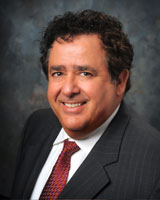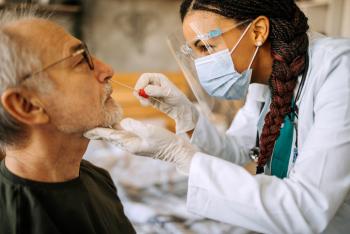Long COVID refers to a range of persistent symptoms that can linger for weeks, months or years after...
Read More
At Inspira, Our Patients and Staff Come First
By John DiAngelo, Inspira Health President and CEO

This COVID-19 pandemic is a battle Inspira is waging on two fronts—using our know-how today to implement new therapies to care for our patients and also how to plan for the surge of patients that the predictive models tell us could be arriving at our emergency departments in the days ahead.
The timing of when the largest number of patients arrive at our hospitals depends on how many of us continue to practice social distancing, handwashing and wearing face masks.
Using a model shared with all hospitals by the University of Pennsylvania, we know our worst-case scenario and our best-case scenario. We spend many hours of every day preparing for that worst-case scenario.
It is our intention to double the number of beds that we currently operate. We know that most of our hospital rooms are big enough to hold two patients. We know that we can take care of patients on the unfinished third floor of Inspira Medical Center Vineland, if necessary. And, we have bed space in our surgical suites because we are not performing elective surgeries.
With the full support of our Board of Trustees to spend whatever is necessary, we are successfully growing our inventory of the Personal Protective Equipment (masks, gowns, plastic shields, etc.) and other resources we will need.
For staffing, we are training nurses from our closed outpatient services, and doctors’ offices to care for our patients. We’ve asked our recently retired nurses to return. We are acting upon every option to add to our staffing.
Inspira Health, along with our physicians, Benjamin Negin, MD, David Kaufmann, MD, and Tami Bach, M.D., jumped on an opportunity to join a clinical trial with the lead institution, The Mayo Clinic. The study involves using plasma donated by recovered COVID-19 patients to treat inpatients with severe or life-threatening COVID-19.
As noted on the Mayo Clinic website, “It's not yet known by which mechanism COVID-19 antibodies might work, but the thinking is that an infusion of convalescent plasma may boost a generalized response, known as passive immunity, until a patient develops a strong, targeted ability to fight the virus.”
We have been treating our high-risk COVID-19 patients with a drug that has just been identified by physicians worldwide as the most effective COVID-19 medication—hydroxychloroquine. This drug, more than 50 years old, has been most commonly used to treat arthritis, rheumatic conditions, and even malaria. Early on, our pharmacists learned that this drug was helping the COVID-19 patients in China. They then acted quickly to secure enough doses in anticipation of our patients’ needs. Also, on the pharmacy front, within 24 hours of the FDA granting pharmacists temporary permission to produce alcohol-based hand sanitizer, a plan was set in motion at Inspira.
Nurses working a 12-hour shift will likely need to clean their hands more than 100 times. With the commercial sources now limited, our pharmacy team is targeted to produce 50 percent--or more-- of the hand sanitizer used at Inspira. Once again, Inspira shows our ability to swiftly, and innovatively, respond to this pandemic’s unexpected tests.
We have always known the power of healing with loved ones at our patients’ bedsides. Now it isn’t safe to allow visitors. As one way to help our patients stay connected to family and friends via Facebook Messenger and Skype, we have iPads for them to borrow. They are handed to our patients with a disposable plastic sleeve.

Long COVID refers to a range of persistent symptoms that can linger for weeks, months or years after...
Read More
A Very COVID Christmas: How to Celebrate Safely
Read More
After more than two years of masks, social distancing and travel restrictions, this winter is likely...
Read More
The material set forth in this site in no way seeks to diagnose or treat illness or to serve as a substitute for professional medical care. Please speak with your health care provider if you have a health concern or if you are considering adopting any exercise program or dietary guidelines. For permission to reprint any portion of this website or to be removed from a notification list, please contact us at (856) 537-6772